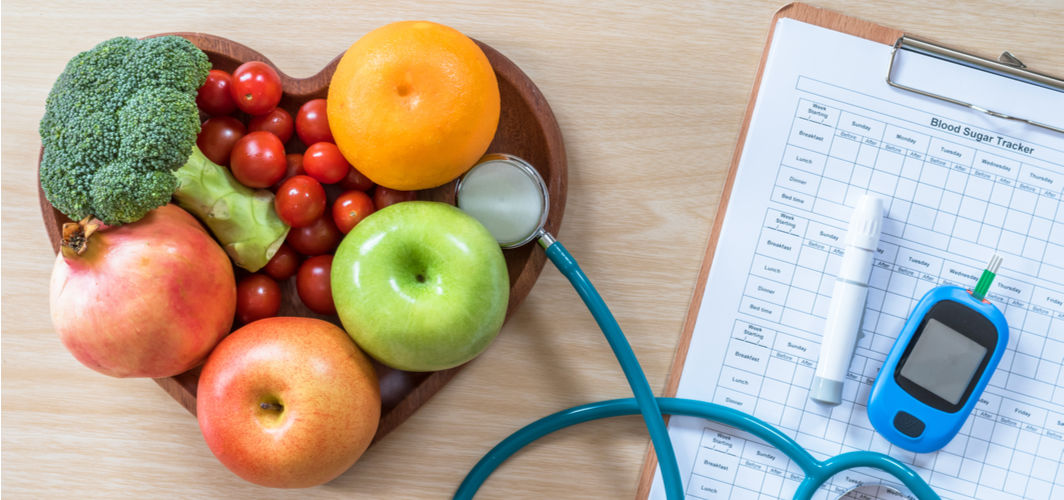Diabetes Management
Managing Gestational Diabetes: Diagnosis, Treatment, and Prevention
2 min read
By Apollo 24|7, Published on - 22 May 2024, Updated on - 24 May 2024
Share this article
0
0 like
.jpg?tr=q-80)
Gestational diabetes, a temporary health condition that affects pregnant women, is a concern that deserves careful attention. With it comes the risk of both mother and baby developing type 2 diabetes later in life. However, awareness about the condition, its diagnosis, and treatment can be a strong ally in navigating this journey smoothly.
Understanding Gestational Diabetes
Gestational diabetes emerges when your body fails to produce enough insulin - the hormone that aids in the conversion of glucose into energy. This failure results in an excess of glucose in your bloodstream. Although this is a common occurrence in pregnancy, for some individuals, it could lead to gestational diabetes.
Diagnosing Gestational Diabetes
Typically, doctors screen for gestational diabetes between the 24th and 28th weeks of pregnancy. The screening includes a glucose challenge test followed by a glucose tolerance test if the first test shows high blood sugar levels. The earlier the disease is detected, the better it can be managed to prevent complications.
Lifestyle Interventions
Dealing with gestational diabetes might involve some lifestyle changes. Medical nutrition therapy plays a critical role here, where a dietician helps you craft and follow a balanced diet plan. Regular exercise is just as important, aiding in keeping your blood sugar levels under control.
Insulin Therapy
In certain cases, despite dietary modifications and increased physical activity, blood glucose levels might stay high. In such instances, insulin injections are initiated to ensure blood sugar is kept within the desired range.
Postpartum Follow-Up: Preventive Care for the Future
It's essential to understand that while gestational diabetes usually resolves post-delivery, it does increase the risk of developing type 2 diabetes later in life. This makes regular follow-ups after delivery crucial to monitor blood sugar levels and assess future risk factors.
Managing gestational diabetes might seem overwhelming initially. However, with timely diagnosis, a sound treatment plan, and a healthy lifestyle, it can be effectively managed. Remember, your health is vital for your baby's well-being.
Diabetes Management
Consult Top Diabetologists
View AllLeave Comment
Recommended for you

Diabetes Management
Explained: The Diabetes and Heart Disease Link
Yes, diabetes can increase the risk of heart disease by affecting the blood vessels and promoting the buildup of plaque. Elevated blood sugar levels can damage the lining of blood vessels, leading to atherosclerosis. Additionally, diabetes is associated with other risk factors like high blood pressure and cholesterol levels, further contributing to heart disease risk.
.jpg?tr=q-80)
Diabetes Management
What Are The Macrovascular Complications Of Diabetes?
Understanding the macrovascular complications of diabetes is crucial in managing this condition effectively. These complications involve coronary heart disease, cerebrovascular disease, peripheral artery disease, cardiomyopathy, and arrhythmias. Management involves keeping blood sugar, blood pressure, and lipid levels under control. Programs like Apollo Super 6 can help prevent these conditions by effectively managing your diabetes.
.jpg?tr=q-80)
Diabetes Management
How Can Education Help Dispel Diabetes Myths?
Unravel the truth about diabetes through education. Understanding the disease, its types, risk factors, and management can dispel common myths and misconceptions. The right education can empower individuals living with diabetes and foster a more informed society. Programmes like Apollo Super 6 can be impactful for those living with diabetes as it uses an all-encompassing approach to diabetes management.
Subscribe
Sign up for our free Health Library Daily Newsletter
Get doctor-approved health tips, news, and more.
Visual Stories

8 Fruits That are Incredibly Healthy for Diabetes
Tap to continue exploring
Recommended for you

Diabetes Management
Explained: The Diabetes and Heart Disease Link
Yes, diabetes can increase the risk of heart disease by affecting the blood vessels and promoting the buildup of plaque. Elevated blood sugar levels can damage the lining of blood vessels, leading to atherosclerosis. Additionally, diabetes is associated with other risk factors like high blood pressure and cholesterol levels, further contributing to heart disease risk.
.jpg?tr=q-80)
Diabetes Management
What Are The Macrovascular Complications Of Diabetes?
Understanding the macrovascular complications of diabetes is crucial in managing this condition effectively. These complications involve coronary heart disease, cerebrovascular disease, peripheral artery disease, cardiomyopathy, and arrhythmias. Management involves keeping blood sugar, blood pressure, and lipid levels under control. Programs like Apollo Super 6 can help prevent these conditions by effectively managing your diabetes.
.jpg?tr=q-80)
Diabetes Management
How Can Education Help Dispel Diabetes Myths?
Unravel the truth about diabetes through education. Understanding the disease, its types, risk factors, and management can dispel common myths and misconceptions. The right education can empower individuals living with diabetes and foster a more informed society. Programmes like Apollo Super 6 can be impactful for those living with diabetes as it uses an all-encompassing approach to diabetes management.

